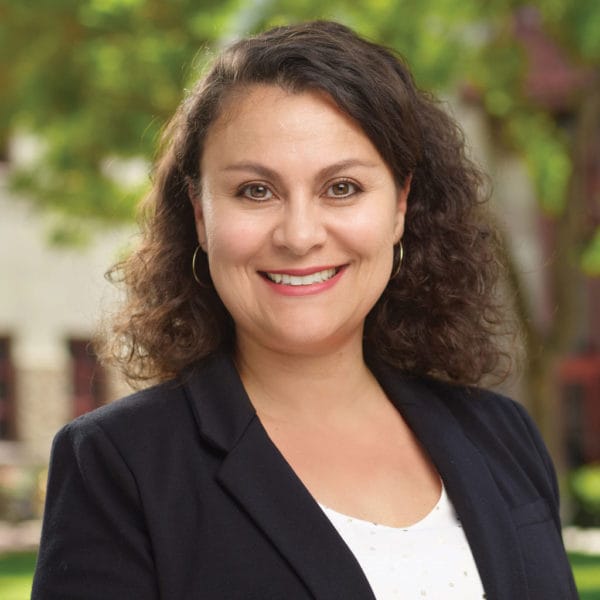Claudia Bermúdez is a clinical assistant professor and coordinator in the Department of Teacher Education at Claremont Graduate University. Her research and teaching interests explore the significance of healthy classroom ecologies and the tension between critical social justice teaching and subtractive schooling. Her work spans K-12 to higher education, with an emphasis on antiracist pedagogy; the intersection of class/race and social/cultural capital in education; and socially just leadership.
Between 2015 and 2017, Bermúdez was part of a research team that was awarded a grant from the John Randolph Haynes and Dora Haynes Foundation to study highly effective teachers of historically marginalized students. In 2019, the findings of this extensive study were published in a book that she co-edited with CGU Professor Mary Poplin titled Highly Effective Teachers of Vulnerable Students: Practice Transcending Theory.
Prior to her time at CGU, Bermúdez cultivated her skills as an educational leader in the Los Angeles Unified School District, where, over the span of a 20-year career, she served as an elementary teacher, site level bilingual coordinator, district level English learner expert, assistant principal over special education, and an elementary school principal.
Bermúdez holds a PhD in Education from Claremont Graduate University, a master’s degree in educational administration from CSULA, a master’s degree in Latin American studies from UCLA, and a bachelor’s degree in Latin American studies from UCLA.
Co-edited with M. Poplin. Highly Effective Teachers of Vulnerable Students: Practice Transcending Pedagogy. Peter Lang, 2019.
Co-authored with R. Camacho. “Women of Color in Academia: Self-Preservation in the Face of White Fragility and Hegemonic Masculinity.” In Violence Against Women in the 21st Century: Transnational Perspectives of Empowerment and Subjugation, edited by K. Zaleski, et al. Oxford University Press, 2019.
Co-authored with T. Kanaya and M. Santiago. “Improving Family-School Communication with Parents of Long Term English Learners.” Communiqué, National Association of School Psychologists, (2017).
Socially Just Leadership: Becoming Equity Champions for Special Populations
Qualitative Inquiry: Theory, Models, and Methods
Strategies for Highly Effective Administrators of At-Risk Populations
Teaching and Learning Process for Equity and Social Justice
Differentiating Content and Language for All Learners
Making Hidden Curriculum Visible to Support All Students and Households
Dismantling the Deep Structures of Schooling
Claremont Native American Fellows Seminar
